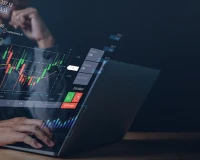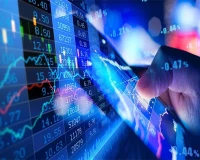-Introduction:
Politicians play a central role in influencing the forex market, as their decisions and statements can cause significant fluctuations in currency prices. Understanding the political impact on the forex market is essential for successful trading. By following political news and analyzing politicians' statements, traders can make informed investment decisions and reduce risks
-Political Factors Affecting the Forex Market:
Political Stability: Political stability is a key factor for investor confidence, as a stable political environment encourages foreign investment, which boosts the currency's value. On the other hand, unstable political events, such as protests or coups, can shake investor confidence and lead to currency sell-offs, causing a decrease in its value.
Monetary Policy: Central banks set monetary policy, including interest rates, to steer the economy.
Rising Interest Rates: This attracts foreign investment, leading to increased demand for the currency and a rise in its value.
Falling Interest Rates: This reduces the currency's appeal to foreign investors, leading to a decrease in demand and a decline in its value.
Fiscal Policy: Government spending decisions affect the budget deficit, which can impact the currency's value.
High Budget Deficit: This can lead to a decrease in the currency's value due to concerns over economic instability.
Budget Surplus: This can lead to an increase in the currency's value due to higher investor confidence in economic stability.
Geopolitical Events: Geopolitical events, such as wars or international conflicts, affect investor confidence, which can result in significant fluctuations in currency prices
-Fundamental Analysis in the Forex Market:
Fundamental analysis is one of the main methods used by traders to evaluate currencies and make trading decisions in the forex market. This type of analysis focuses on macroeconomic factors and political events that can affect the value of a currency.
Fundamental analysis heavily relies on economic indicators such as GDP, unemployment rates, inflation, and trade balance. These indicators provide insight into the economic condition of a country and its impact on the currency's value.
International and trade relations between countries can also influence currencies. Trade agreements, sanctions, and trade wars are all factors that should be considered when evaluating currencies
-Geopolitical Events and Their Impact on the Forex Market:
Geopolitical events have always played a significant role in shaping the global economy, and the forex market is no exception. As traders, it is crucial to understand how these events can impact currency values and make informed decisions based on fundamental analysis. In this section, we will delve into the complex relationship between geopolitical events and the forex market, exploring insights from various perspectives to provide a comprehensive understanding of this dynamic.
Political Stability: One of the key factors affecting the forex markets is political stability or instability within a country. When a nation experiences political turmoil or uncertainty, investors tend to lose confidence in its currency. For example, during the 2016 Brexit referendum, the British pound declined as investors feared the potential economic consequences of the UK leaving the European Union.
Trade Wars: Trade disputes between countries can have a profound impact on the forex markets. Tariffs and trade barriers imposed by one nation can disrupt international trade flows and cause currency volatility. The ongoing trade tensions between the U.S. and China serve as an excellent example. As both countries impose tariffs on each other's goods, it creates uncertainty in global markets, causing currencies like the Chinese yuan and the U.S. dollar to fluctuate.
Economic Sanctions: Geopolitical events often involve economic sanctions imposed by one country on another as a means of exerting pressure or punishment. These sanctions can significantly affect a nation's economy and the value of its currency. For example, when the U.S. imposed sanctions on Iran in 2018, it led to a sharp decline in the Iranian rial as international investors pulled their capital out of the country.
Geopolitical Conflicts: Armed conflicts or geopolitical tensions can also have a major impact on forex markets. When conflicts arise, investors tend to seek safe-haven assets like gold or currencies from politically stable countries, such as the Swiss franc or the Japanese yen. For instance, during the height of the Syrian Civil War, the value of the Syrian pound declined as investors fled the country in search of safer investments elsewhere.
Central Bank Policies: Geopolitical events can drive central banks to adjust their monetary policies to mitigate potential economic risks. These policy changes, such as interest rate adjustments or quantitative easing measures, can affect currency values. For example, when geopolitical tensions rise, central banks may lower interest rates to stimulate economic growth and stabilize their currency.
-Political Events and Their Impact on the Forex Market:
Political events can have a significant impact on the forex markets. This is because political decisions and events can directly affect a country's economy and financial markets. Political events can range from elections and policy changes to geopolitical tensions. As a forex trader, it is essential to stay informed about political events and their potential impact on the markets.
Elections: Elections can be a major driver of market volatility. This is because the results of elections can lead to significant changes in government policies, which can directly affect the country's economy and financial markets. For example, if a pro-business political party wins the election, it may lead to increased investment and economic growth. On the other hand, if an anti-business party wins, it may result in decreased investment and economic growth.
Policy Changes: Policy changes can also have a significant impact on the forex markets. This is because changes in policies can directly affect the country's economy and financial markets. For example, if a country's central bank raises interest rates, it may lead to an increase in the value of that country's currency. Conversely, if a central bank lowers interest rates, it may lead to a decrease in the value of that country's currency.
Geopolitical Tensions: Geopolitical tensions can also affect the forex markets. This is because geopolitical tensions can lead to increased uncertainty and risk aversion. For example, if there is a significant increase in tensions between two countries, it may lead to a reduction in investment and economic growth.
Best Practice: The best approach for forex traders is to stay informed about political events and their potential impact on the markets. This can be done by following the media, reading reports from financial institutions, and keeping up with economic indicators. It is also crucial to have a risk management strategy in place to navigate potential market fluctuations.
-Tips for Trading in the Forex Market Considering Political Impacts:
The forex market is dynamic and volatile, significantly influenced by political events. Here are some tips for trading successfully in this market while considering the political impacts:
Stay Informed About Political Events: Regularly follow political news and economic reports. Elections, international summits, and policy changes can affect currency fluctuations.
Understand Monetary Policy: Ensure you understand central bank decisions and their impact on currencies. Interest rate changes and statements from officials can have significant effects.
Use Fundamental Analysis: Use fundamental analysis to assess how political events may impact currencies. Look at economic indicators and government reports to identify trends.
Be Prepared for Volatility: Political events can lead to sharp price fluctuations. Be prepared for this by managing risk effectively and carefully determining entry and exit points.
Avoid Trading During High Uncertainty: If there are major political events, such as elections or referendums, it may be wise to avoid trading until the results are clear.
Rely on Diverse Strategies: Do not rely on just one strategy. Use a mix of fundamental and technical analysis, as well as other trading strategies to improve outcomes.
Monitor Safe-Haven Currencies: During political crises, investors tend to flock to safe-haven currencies such as the U.S. dollar or the Japanese yen.
Learn from Experience: Use past experiences and previous political events to develop a deeper understanding of how politics affects the markets
-Conclusion:
Politics has a significant impact on the forex market. Political decisions and events can lead to substantial fluctuations in currency values. Therefore, it is important for forex traders to stay aware of the political landscape and understand how political events can affect their investments









